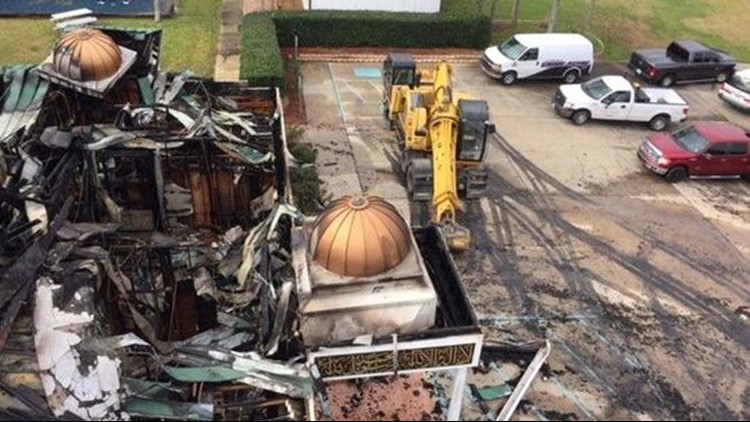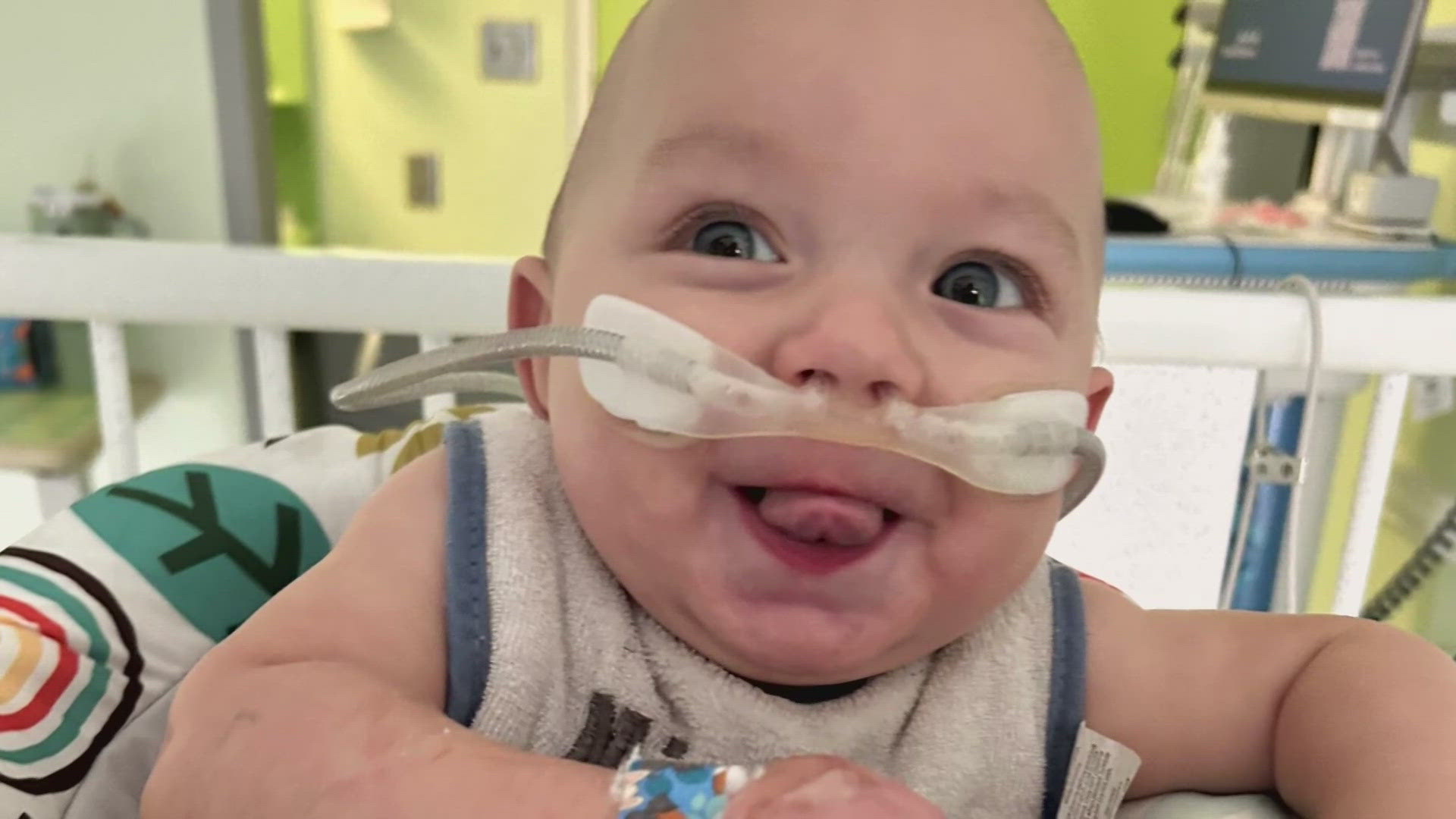VICTORIA, Texas — VICTORIA, Texas - A man accused of setting a South Texas mosque ablaze last year has been convicted.
The trial of Marq Vincent Perez, who was indicted last year of a hate crime related to the Jan. 28, 2017 fire at the Victoria Islamic Center, began last week at the federal courthouse.
It took the jury about three hours of deliberations before finding him guilty of three felony counts including damage to a religious property, use of fire to commit a federal felony and possession of a destructive device related to an earlier incident.
Perez, wearing a grey shirt and glasses, sat beside his attorney Mark Di Carlo Monday as federal prosecutors presented their closing arguments to a jury. His trial was expected to last two weeks, but the presentation of evidence concluded Friday.
A video clip of the burning mosque played on a large screen in the courtroom as prosecutor Saeed Ahmed Mody began presenting his case.
"His intention was for damage and destruction, and that's exactly what he did," Mody said.
He argued it was Perez's goal to "terrorize" the Muslim community. He described the Victoria Islamic Center as a place where the community would gather to celebrate joyous occasions -- weddings and weekly potlucks -- as well as sad occasions.
On the trial's first day, the jury heard from a federal prosecutor who painted Perez as having an "absolute hatred" of Muslims. Sharad Sushil Khandelwal, a prosecutor from the U.S. Attorney's Office, said Perez became involved with a militia group on Facebook and began forming what he called "rogue units."
On Jan. 15 Perez went on a "training mission" to throw an "improvised bomb" into a car, he said. After burglarizing the mosque with a juvenile identified as K.R. on Jan. 22, the two returned on Jan. 28 but this time, Perez set the mosque on fire, Khandelwal argued last week.
But during his closing arguments, Di Carlo maintained his client's innocence. He told jurors that the juveniles' testimony is hearsay and promoted the idea that he was not a credible witness.
He also categorized the June 15 incident as separate from the Jan. 28 burglary and fire.
Khandelwal said due to their belief the June 15 incident was done as a "training mission," the two crimes were connected. He also said Perez's DNA was found on the "improvised bomb."
The jury was shown private messages and Facebook posts that prosecutors say show Perez’s dislike and suspicion of Muslims on the trial's second day, according to the Associated Press.
"He can't keep his mouth shut and he can't keep his fingers off the laptop either," Khandelwal said.
The jury also listened to testimony that showed Perez’s phone contained photos of the burning mosque.
Di Carlo said the government "cherry picked and oh so carefully presented" their evidence against Perez.
"We only have what the government allowed us to see," Di Carlo said.
He also maintained that "there's nothing about religion in this case" and suggested that Perez was "profiled" because he's conservative, had a brief stint in the military and was allegedly a part of the militia group.
Di Carlo flipped through a copy of the Quran that had been admitted into evidence.
"And do not cover the truth with falsehood," he read asking the jury to find Perez not guilty.
The Associated Press contributed to this report.



